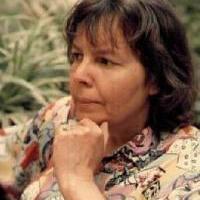
Shlomit C. Schuster, one of the pioneers of philosophical counseling, passed away this past weekend. She would have been 65 in July.
Dr. Schuster, originally from the Netherlands, was educated at the Hebrew University of Jerusalem, where she received her B.A., M.A. and Ph.D. Setting up a practice in philosophical counseling in Jerusalem in 1990, she is well known within the philosophical practice community for operating a philosophical, telephone “hotline” for persons with existential problems and ethical challenges.
I first met Shlomit in 1997 at an international conference on philosophical practice organized by the National Philosophical Counseling Association (then called the American Society for Philosophy, Counseling, and Psychotherapy). Some board members of the Association had advocated the passage of legislation in the U.S. regulating philosophical practice. One such individual spoke to the convention about the merits of the idea. Dr. Schuster, among others, found the idea repugnant and contrary to the free-spirited nature of philosophical inquiry. To her, government regulation of philosophy was anti-democratic and very dangerous, and she was an ardent and outspoken critic of the idea. In her 1999 book, Philosophy Practice: An Alternative to Counseling and Psychotherapy (Praeger), she stated, “It is obvious that such political restriction concerning the different types of philosophy practice is doomed to fail, because it contradicts the Universal Declaration of Human Rights (Articles 18, 19, and 20) and the First Amendment of the Constitution of the United States” (pp. 6-7).
Dr. Schuster’s deep commitment to free thinking defined her idea of philosophical practice. She conceived it as offering “at least potentially what philosophy itself is supposed to offer: freedom from the preconceived, the ill-conceived, the prejudiced, and the hubris of knowing it all” (p. 64). Those who came to her for philosophical counseling were not patients, that is, passive recipients of counseling. Instead, they were active, autonomous agents who sought to use philosophy to deal with their problems of living, especially existential problems that focused on the meaning and import of their lives. In this manner, she conceived the careful analytic methods of philosophical inquiry as the light that helped to promote greater freedom of thought and action. But it was not just the methods of philosophy that were liberating; for she spent a lifetime artfully demonstrating how philosophers, from antiquity to the present, from the pre-Socratics to Derrida, and beyond, could provide guidance in living well.
Indeed, a keynote of Dr. Schuster’s philosophical practice was calling forth the myriad voices of philosophers to help her clients bring meaning out of confusion. For example, through her philosophical practice, she showed how invoking Buber’s idea of “existential trust” could help one to relieve anxiety about potentially bad things happening; how Sartre’s idea of authenticity might help to avoid being manipulated by others; how Bertrand Russell’s idea of impersonal interests as a condition of happiness could help a depressed client look for meaning outside her own subjectivity; how Spinoza’s view of God and Nature could help a client gain a deeper, philosophical understanding of her own discomfort with orthodoxy; and how countless other philosophers have provided an incredibly useful reservoir of philosophical insights and practical guidance.
An extremely gifted philosopher and historian of philosophy, her talents as a philosophical practitioner were brought home through her powers of empathy, genuineness, and respectfulness. She did not simply practice philosophy; she exemplified it in her personal as well as professional life.
Dr. Schuster was a strong supporter and friend of the National Philosophical Counseling Association, from its very inception. She contributed to the NPCA’s International Journal of Philosophical Practice, attended conferences and meetings of the NPCA, and provided valuable feedback on its policies and practices.
As Executive Director, I valued and sought her guidance on international matters. She was a close friend and colleague, and, throughout the many years of our association, we shared ideas, endorsements, and support for one another’s work.
Schlomit C. Schuster’s books and articles have exerted profound influence on the growth of philosophical practice globally, from East to West, and have been translated into many languages, including Hebrew, German, Italian, Spanish, Portuguese, English, Dutch, and Chinese, among others.
As a world community of philosophers who believe in the power of philosophy to transform lives for the better, we have all suffered a great loss; but we can be grateful for all that she has given to advance our collective cause. We will miss and never forget her.
Elliot D. Cohen, Ph.D.
Executive Director
National Philosophical Counseling Association
